
Why leaders should learn to value the boundary spanners
Entrepreneurial talent who work with other teams often run into trouble with their managers. Here are ways to get the most out of your ‘boundary spanners’...
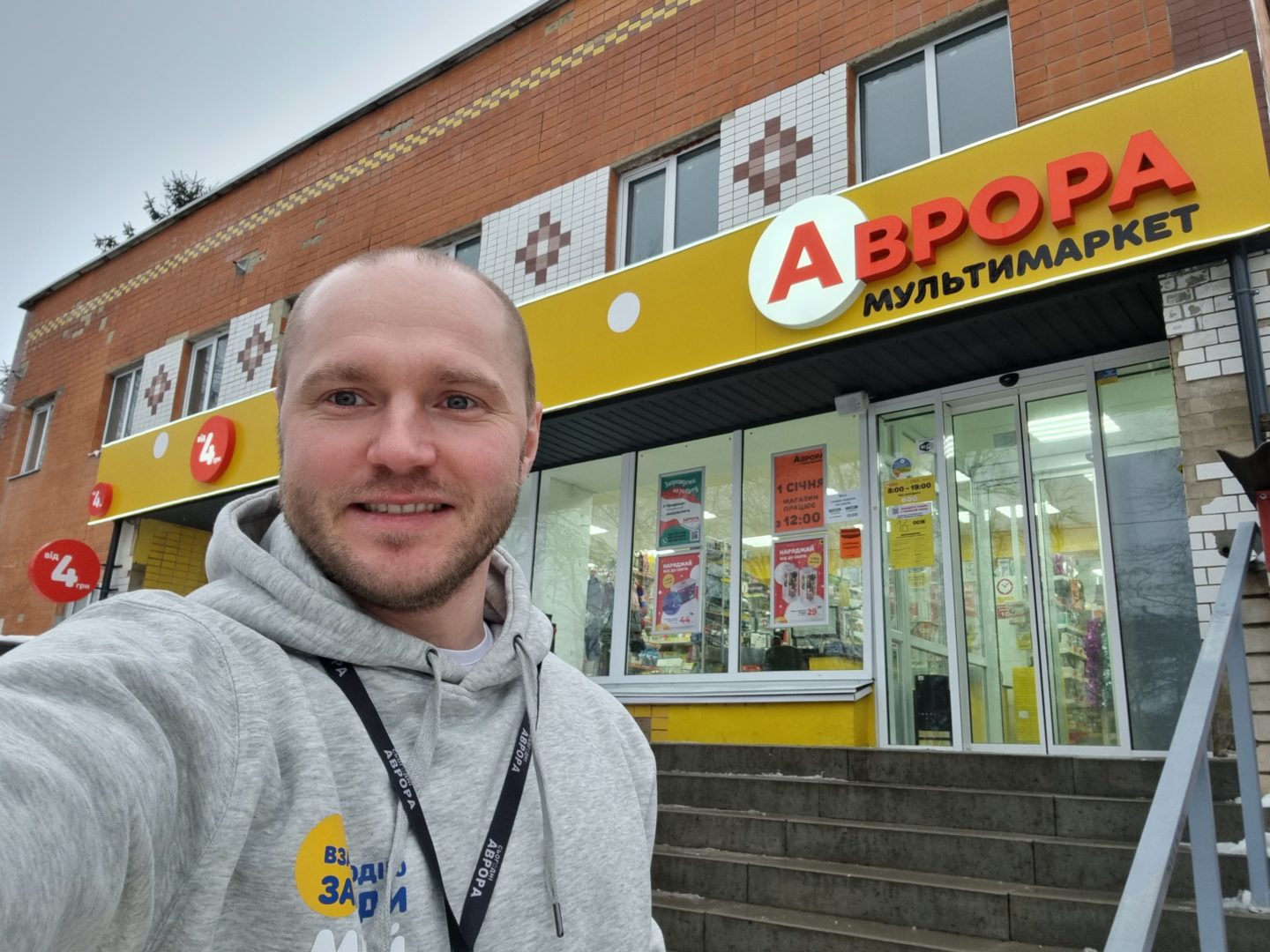
Published March 2, 2022 in Supply chain • 4 min read
One week ago, customers popped into Ukrainian discount store chain Avrora to browse shelves piled high with kitchen utensils, colourful reusable water bottles and craft items like glue and glitter. Now, with Russian missiles raining down on the country, its top-selling products are toilet paper, power banks, batteries, torches and candles.
Following last week’s Russian invasion, CEO Taras Panasenko, an IMD EMBA candidate who completed IMD’s Program for executive development in 2020, is determined to keep open as many of Avrora’s 860 stores as possible, provided it is safe for staff.
“On the first day of the invasion, all stores were closed in the morning, but by the evening we started to open some again,” Panasenko told IMD while he was out shopping for additional military equipment, including sturdy shoes and bags in case he is called up to fight. “People actually asked us if we could open our stores.”
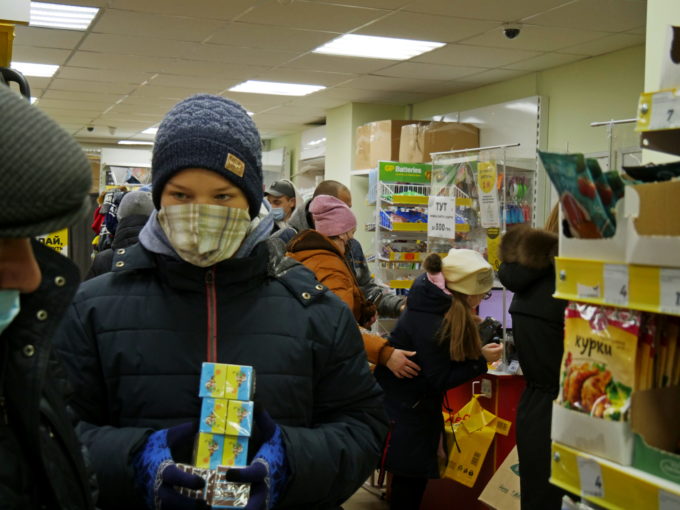
Established in 2011 by Panasenko and co-founders Lev Zhydenko and Lesya Klimenko, Avrora has grown rapidly to become the third-largest non-food discount retailer in Central and Eastern Europe, according to global real estate brokerage services firm Colliers.
On Tuesday, 1 March, Avrora opened around 500 stores. Some 300 remained closed because they are in areas affected by heavy shelling, or don’t have bomb shelters nearby for the case that employees need to seek shelter. Others are shut due to staff shortages after people moved to be closer to families. Fourteen stores are currently in territories occupied by Russian troops.
“We do not support the occupation. If we were to work there it would be like betrayal,” said Panasenko. “The occupation administration asked us to open the stores, but we said we couldn’t due to technical reasons.”
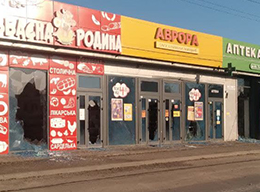
The main challenge for Panasenko and his team, who speak up to three times a day, is how to keep the supply chain running. Anticipating disruption, Avrora stocked up its warehouses and inventories remain high. The problem is finding drivers willing to distribute goods to its stores, with many reluctant to travel far away from relatives, while others with previous military experience have been drafted into the Ukrainian army.
“Drivers are afraid to go and leave their families because no one knows what will happen in one hour. This is the main issue because we have to supply and replenish our stores,” Panasenko said.
Many roads, especially those heading west, are clogged with cars as citizens flee. Panasenko was in Poltava, a city in central Ukraine where Avrora’s headquarters is based, when Russian tanks first rolled into his country. He drove to Dnipro to pick up his 69-year-old mother, his sister, and her children before heading to Lviv, a city of 700,000 around 70km from the Polish border. The 1,000km journey that would have typically lasted around 10 hours took 60.
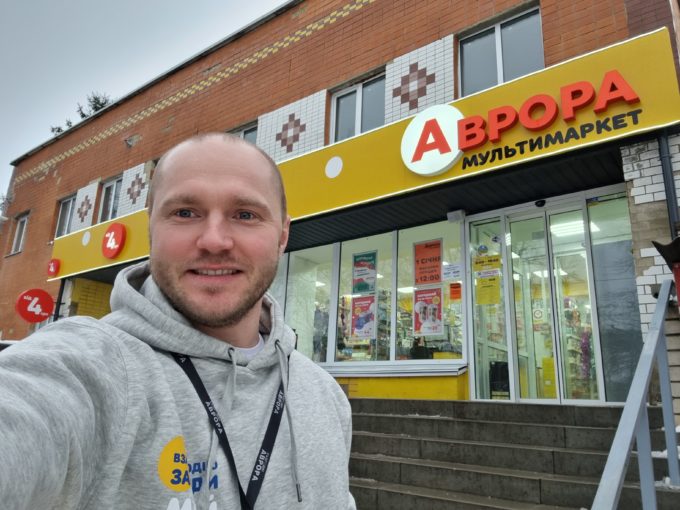
Besides keeping its stores open, Avrora is helping to support Ukrainians in other ways. It has launched a service allowing customers to withdraw up to 500 hryvnia ($17) from their bank cards at its checkouts and has also put “help boxes” in stores where people can donate essential basic goods for those who can’t afford to buy them. Its website advises customers about reliable news sources to help prevent the spread of disinformation, and provides links to bank accounts that will fund the Ukrainian military.
The company also helped evacuate employees from the city of Kharkhiv, Ukraine’s second-largest city which has been pounded by Russian missile attacks and is supporting local defense forces by cooking for the military and providing hospitals with additional supplies.
We don’t have another homeland. We have only one homeland and I have 7,500 employees for whom I am responsible. I cannot just go away and leave them.- Taras Panasenko, CEO and co-founder of Avrora
For those outside Ukraine wanting to help, Panasenko advised dropping off essential supplies like medicines and diapers at the French, Italian or Polish warehouses of Ukrainian package courier Novaposhta who will deliver the goods to Ukraine. Supermarkets remain stocked with food for the time being, but what Ukrainians really need is body armor and helmets, he added.
At the same time as running his business, Panasenko remains vigilant and ready for the worst. Each evening at 8pm he and several neighbors patrol the perimeter of his residential building in Lviv on the lookout for suspicious cars and potential saboteurs. A few days ago, neighbors discovered ultra-violet symbols marked on the ground that are designed to act as targets for Russian missile strikes. The bomb shelter is stocked with water, food and supplies and a few days ago the building’s caretaker also installed wi-fi.
Like many of his fellow citizens, Panasenko is defiant in the face of Russia’s invasion. “I am not going to leave the country. I am going to stay here. We don’t have another homeland. We have only one homeland and I have 7,500 employees for whom I am responsible. I cannot just go away and leave them.”
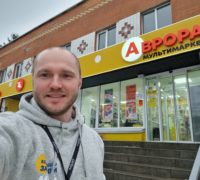
CEO and co-founder of Avrora

2 hours ago • by Eric Quintane in Leadership
Entrepreneurial talent who work with other teams often run into trouble with their managers. Here are ways to get the most out of your ‘boundary spanners’...
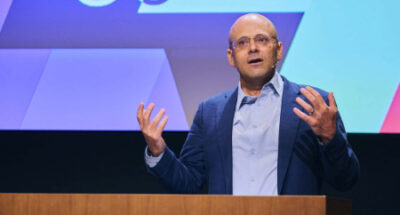
June 27, 2025 • by David Bach in Leadership
Business leaders today should identify their points of leverage – be it public influence, economic power, or industry collaboration – to quietly but effectively push back against policies that undermine democracy, said...

June 27, 2025 • by Rainer Hersch in Leadership
Comedian and conductor Rainer Hersch says managers striving to lead high-performance teams can find inspiration in the concert hall. ...
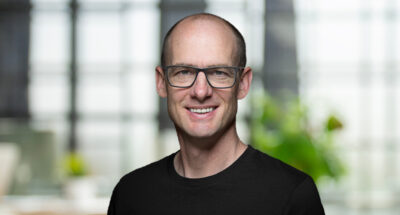
June 25, 2025 • by Howard H. Yu in Leadership
Historian-turned-business-professor Martin Gutmann talks to IMD’s Howard Yu....
Explore first person business intelligence from top minds curated for a global executive audience